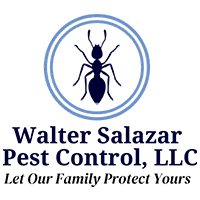
Individual Protective Equipment
Individual defensive hardware (PPE) is clothing and gadgets worn to safeguard the human body from contact with pesticides or pesticide deposits. Individual defensive gear incorporates coveralls or defensive suits, footwear, gloves, covers, respirators, eyewear, and headgear. Standard shirts, jeans, shoes, and other normal work clothing as a rule are not viewed as private defensive gear, albeit the pesticide marking might expect you to wear explicit things of work clothing during certain exercises. Openness to pesticides can cause destructive impacts. To forestall or decrease openness to pesticides, you want to wear individual defensive hardware like in pest control essex .
Keep in mind, that the absence of any prerequisite for individual defensive gear or the notice of just a single piece of hardware doesn’t preclude the requirement for more security. No pesticide marking guidelines can cover all circumstances. Your good judgment, the data on the marking about precautionary measures for people, and the errand you will perform will assist you with surveying your possible risk and choosing the sum and sort of private defensive hardware you want for each taking care of work.

Pesticide marking records the base individual defensive gear you should wear while taking care of the pesticide. At times the marking records various prerequisites for various exercises. For instance, more private defensive gear might be expected for blending and stacking than for application.
Synthetic Resistant Personal Protective Equipment
Some pesticide marking expects you to wear synthetic safe individual defensive gear. You should choose a material that will be safe for the timeframe that you will be presented to the pesticide. Most substance-safe individual defensive gear things are made of plastic or elastic, yet these materials are not similarly impervious to pesticides and in all conditions.
Factors Affecting Chemical Resistance
How compound-safe a material will be in your pesticide taking care of circumstance relies upon the length of openness, the openness circumstance, and the substance to which the material is uncovered.
Length of openness – Not a wide range of materials that are impervious to a specific pesticide will safeguard you for a similar measure of time. A few materials will keep the pesticide out for quite a while. Others will permit the pesticide to go through the material to your skin decently fast. Dainty materials, for example, expendable synthetic gloves, shoe covers, or covers, might be as need might arise for errands that should be possible shortly. Longer positions normally require things made of a heavier material. Synthetic opposition is in many cases expressed as far as openness time. For instance, neoprene is impervious to CH3)2CO for 30 minutes or less and to diesel fuel for over 4 hours. Assuming you wear neoprene gloves while taking care of pesticides with a CH3)2CO dissolvable, you should change the gloves essentially like clockwork; if not, the pesticide and the CH3)2CO will traverse the gloves and onto your hands.
Openness circumstance – Even a synthetic safe material won’t keep on safeguarding you on the off chance that it becomes harmed during pesticide taking care. For undertakings including sharp or pointed items or strolling through the harsh landscape, for instance, a substantial material likely would be important to guarantee synthetic opposition. Kind of compound – Few materials will shield you from all pesticide items. The degree of compound opposition might depend on what the dynamic fixing is, yet in addition on whether the pesticide is fluid or dry and what diluents or solvents are utilized.




